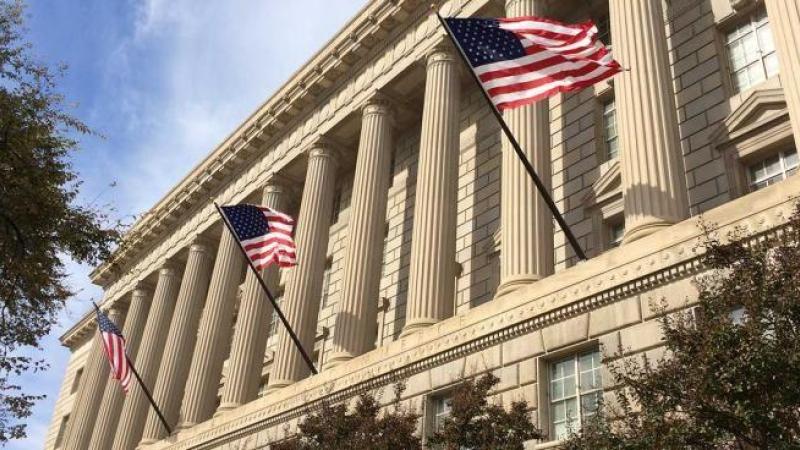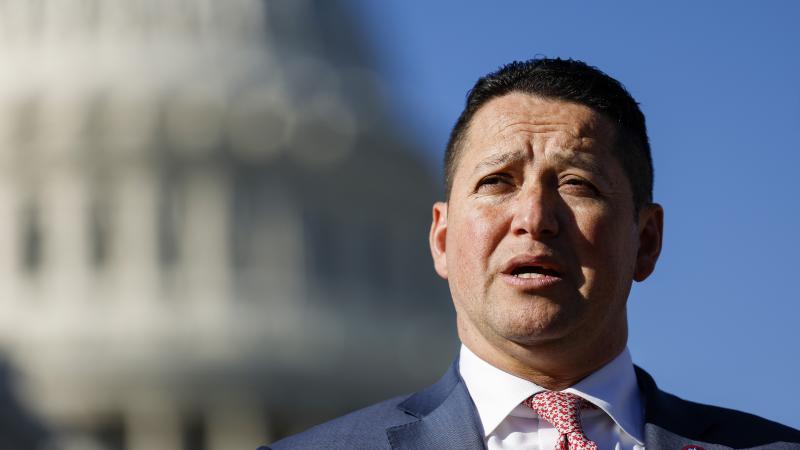Bidenomics on hold? Poor economic reports raise caution flags for massive spending plans
Market economists warn of weakened recovery and rising prices, even as Fed chairman counsels calm.
As problems for President Biden multiply at home and abroad, Bidenomics — the massive public spending that drives the president's economic and domestic agenda — suddenly faces especially strong headwinds, as bad reports on jobs and inflation have raised giant yellow caution flags.
The month of April produced an unexpectedly disappointing jobs report, followed by a sharp rise in inflation — at the grocery store and the gas pump — that is being felt alike in homes across the nation and in the financial markets, which were sent into a frenzy by the numbers. And Americans continue to line up for (expensive) gas all along the East Coast ahead of Memorial Day.
Chairman of the Federal Reserve Jerome Powell has counseled Americans not to worry overly about inflation, arguing that some increase was always an inevitable byproduct of economic recovery after the pandemic. It will subside, he says.
Cecilia Rouse, the chairwoman of the White House Council of Economic Advisers, says the most recent jobs doesn't account for several factors, including seasonal adjustments, holiday weekends, and the gap between receiving a vaccine and becoming fully immune.
The White House is working to calm nerves surrounding the bad economic reports as it continues to push forward twin legislative packages that would amount to another $4 trillion in spending.
The U.S. can afford about one quarter of the spending that is currently being proposed by the administration, warns conservative economist Peter Morici.
"We can afford a trillion-dollar program to improve infrastructure to make the semiconductor industry more competitive with the Chinese, to harden the supply chain and bring some industry back," Morici told "Just the News AM" this week. "But we cannot afford massive increases in social services."
"[U]nless we want to have a lot of inflation, or tax companies to the point that they leave the country," he warned, the U.S. can really only afford to invest in necessary infrastructure — not spend trillions "building out the state."
Morici agreed with the White House's assessment of the April jobs report, saying it reflected "bad statistics, not bad numbers" and predicting that the May and June reports will show significant upticks.
Even so, rising inflation is causing him concern.
"The inflation numbers are terrible for this early in the recovery, they indicate we are in for a long sustained period of inflation, that is quite damaging to working class Americans and to the elderly," he said.
Former Treasury Secretary Lawrence Summers recently shared similar apprehensions about spiking inflation with Bloomberg. "[I]t's all moved much faster, much sooner than I had predicted," he said. "That has to make us nervous going forward."
Continuing to spend a few trillion dollars per legislative package amid renewed inflation is like "loading gasoline on a forest fire," said former Trump economic adviser Steven Moore on a recent episode of the John Solomon Reports podcast.
Recent reports aside, the economy is currently strong and would be poised for a steady comeback, if government would step aside, according to the pro-market Moore. Biden's two packages would, instead, inject the federal government into the economy on a scale with little peacetime precedent.
"Can you imagine if we spent another $2 trillion dollars?" Moore postulated. "That's going to lead to much higher inflation, much higher interest rates" and ultimately raise the U.S. debt by trillions.
Democrats in Congress don't appear ready to pump the brakes on Biden's proposed $4 trillion in new spending any time soon. "There isn't any anxiety about the spending plans," Rep. Don Beyer (D-Va.) told Business Insider.
If the spending does happen, 2022-2023 will be "much weaker" economic years than "we would have otherwise gotten," said Moore, citing Democratic midterm election debacles in 1994 and 2010 that occurred during economic downturns as a warning for Democrats in 2022.
Noting that "Joe Biden wants to help less advantaged Americans," Morici said, "Spending too much money is a great way not to do that."
Like Moore, Morici foresees Democrats paying a steep political price should they spend the nation into a return of inflation. "If they think they can have 3% or 4% inflation and happy faces going to work every morning after paying too much for gas, history indicates they are mistaken," he warned.
















